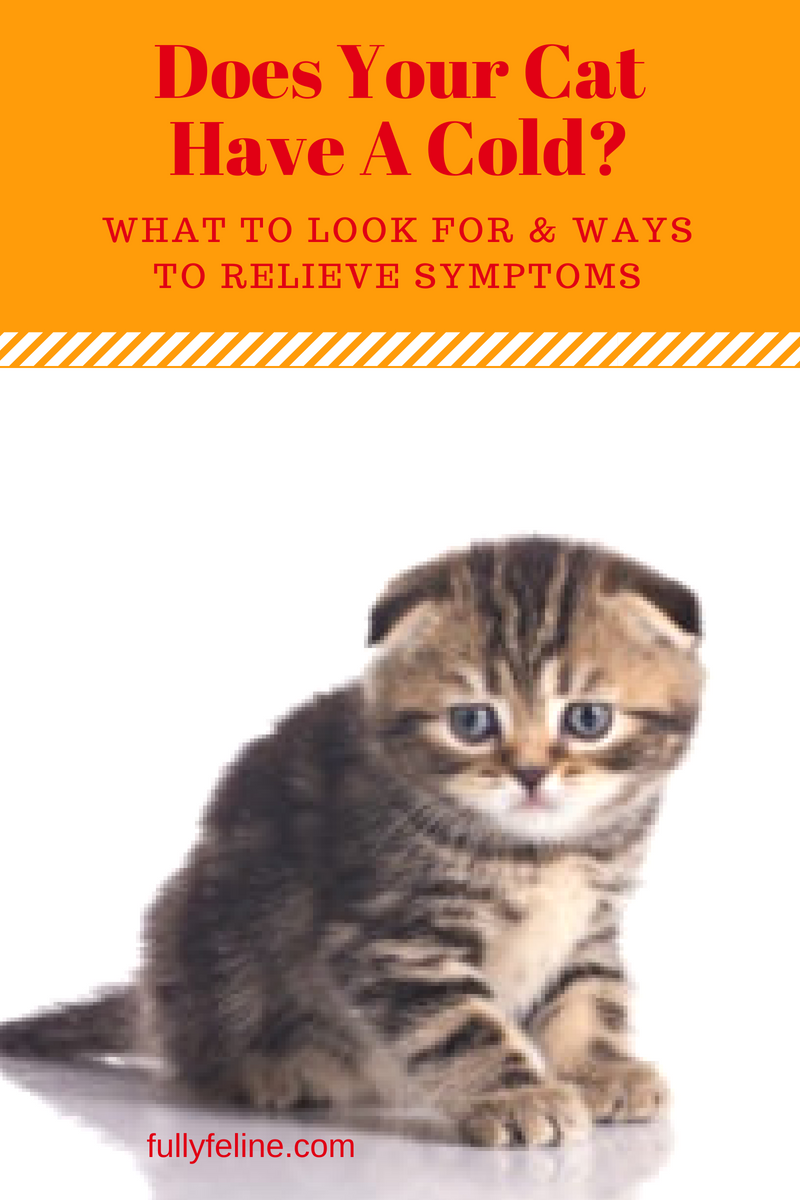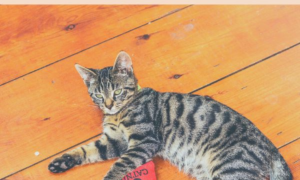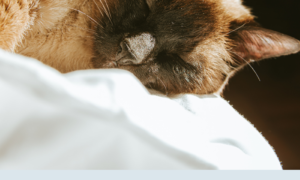When it comes to cat health, just like humans, cats can catch colds, and do so fairly frequently. Colds are not passed between humans and cats since the viruses that cause colds are species-specific. We do have an advantage over cats: while we can treat our colds with medicine, our pets cannot. This means that cat colds can become serious, especially if you have more than one cat in your home.
Symptoms To Look For
The symptoms of cat colds are nearly identical to human colds: wheezing, sneezing, watery eyes, coughing, mucous seepage. You may also observe what look like cold sores around your cat’s mouth or respiratory problems.
One of the first signs of a cat cold is a stuffy nose. Observing your cat when he eats is an important way to tell if he is suffering from a stuffy nose, since he will not be able to smell his food (normal cat behavior). Usually, a cat that cannot smell his food won’t even eat or drink. Therefore, if you notice that your cat isn’t eating normally, call your veterinarian right away.
Indoor Only Cats Get Sick Too
Cat colds are most common during the summer, and they are highly contagious. Indoor only cats are not immune, cats can catch a cold at the groomer, the vet, or boarding facility. For multi-cat homes, watch for symptoms in other resident cats.
If your cat has been stressed by changes in schedule, guests in the home, or other circumstances out of the norm, his immune system can be comprised, making him more susceptible to illness.
How Long Do They Last?
Usually, a cat cold will run its course in seven to ten days, about the same length as the human cold. The cat’s immune system will usually take care of it, so don’t administer human cold medication as a remedy. Cat colds become serious if the virus spreads, causing a respiratory infection or a secondary infection in the sinuses.
Relieving Cold Symptoms
Steam
If your cat has a stuffy nose, it can impact his appetite. Cats sniff their food before eating it, so when they can’t smell it, they aren’t inclined to eat. To relieve a stuffy nose, try taking your cat into a hot, steamy bathroom. Another option is a vaporizer. The steam will help dissolve the stuffiness.
Vitamins and Natural Remedies
There are vitamins and natural remedies that may speed your cat’s recovery and boost his immune system. Before administering these, check with your vet for dosage information and any precautions.
Vitamin C. Giving your cat 250 to 500 milligrams of vitamin C twice a day can help boost your cat’s immunity just as it does in people. Since most cats hate taking pills, spray or gel formulas work best. These can be sprayed in their mouth, or put on their paw and they will lick off.
Apple Cider Vinegar. Helps alkalize a cat’s body PH, to ward off pathogens. Typical dosage is half a teaspoon in cat’s food or water once daily.
Lysine. An amino acid that serves as a building block for proteins, to help inhibit the replication of the virus. Usual dosage is about 250 to 500 mg given a few times per day.
Conclusion
If you think your cat has caught a cold and his symptoms are not improving or have worsened, call your veterinarian. Getting treatment early is important to prevent a cold from becoming something worse. Once your cat develops a respiratory infection, it can come back over and over again.






